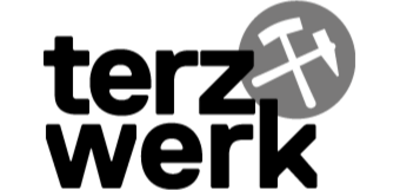BA and MA in Economic Policy Journalism
"Inflation is back," "Germany must change its energy supply," "How will today's young people get enough pension in old age?" Economic policy issues are the perennial hot topics in current news coverage. Behind such news are journalists who must have knowledge about the subject.
But to really understand where inflation comes from, how the (German) energy market works and what the pension system of the future might look like, you need a sound knowledge of our economy. This is where the Economic Policy Journalism (WiPoJo) program comes in.
WiPoJo students are prepared for the pressing issues of our time through a comprehensive study of economics. This does not mean the course will provide them with a satisfactory answer to every economic question. Rather, it is about being able to accompany the current scientific and public debate on economic policy issues.
Successful, graduates are able to comprehend and present economic arguments and, if necessary, to criticize them in a well-founded manner. At the same time, they can present economic issues in a comprehensible way and convey them journalistically in a way that enables as many people as possible to participate in the discourse.
BA at a glance
- Application phase: June-July
- Programme start: winter semester (October)
- Standard study period: 8 semesters
- Curriculum: practical training in a teaching newsroom plus education in journalism studies plus full-fledged economics studies, plus a year-long traineeship with partner media
- Admission requirements: 6-weeks internship. The goal of the internship is to become familiar with recurring journalistic basic routines and to develop a fundamental understanding of the public role of journalism. Internships in the editorial office of an advertising paper, a PR or media agency, press offices, or in non-journalistic media and production companies will not be recognized.
- German language requirements: Level C2 (only certificates from universities, colleges and preparatory courses whose examination regulations are registered with the German Rectors' Conference are recognized, please find more details on the website of TU Dortmund University)
- German language requirements for Erasmus+ students: Level B1
Curriculum design
Our students spend about half of their studies in the Department of Business and Economics - and even learn a bit more of the latter there than their peers majoring in economics. In order to be able to transmit their specialist knowledge to others, WiPoJo students also work within the institute's training newsroom and complete an integrated one-year traineeship (Volontariat) at the end of their studies. Throughout their studies, seminars create the connection between the fields of economics and journalism.
Study content BA
The main aim of the programme is to educate students to qualify as journalists able to report on economic and political events with a sound background knowledge. The programme covers reporting for newspapers, news agencies, TV and radio broadcasting, and online news reporting and intends to convey a mixture of both theory and practical elements and involves:
-
Basics in journalism production for print and electronic media;
-
The ability to understand complicated issues in the field of economic policy and make such issues accessible to an audience in journalistic form;
-
Communicative and social competencies;
-
A deep understanding of our economic system, its institutions and problems
-
Reflective capabilities and ethical competency to be able to review and contextualise events journalistically and to develop a critical attitude towards one’s own actions as a journalist.
MA Economics and Journalism
All information on study contents, curriculum design and study profiles of the MA degree programme "Economics and Journalism" are provided here.






